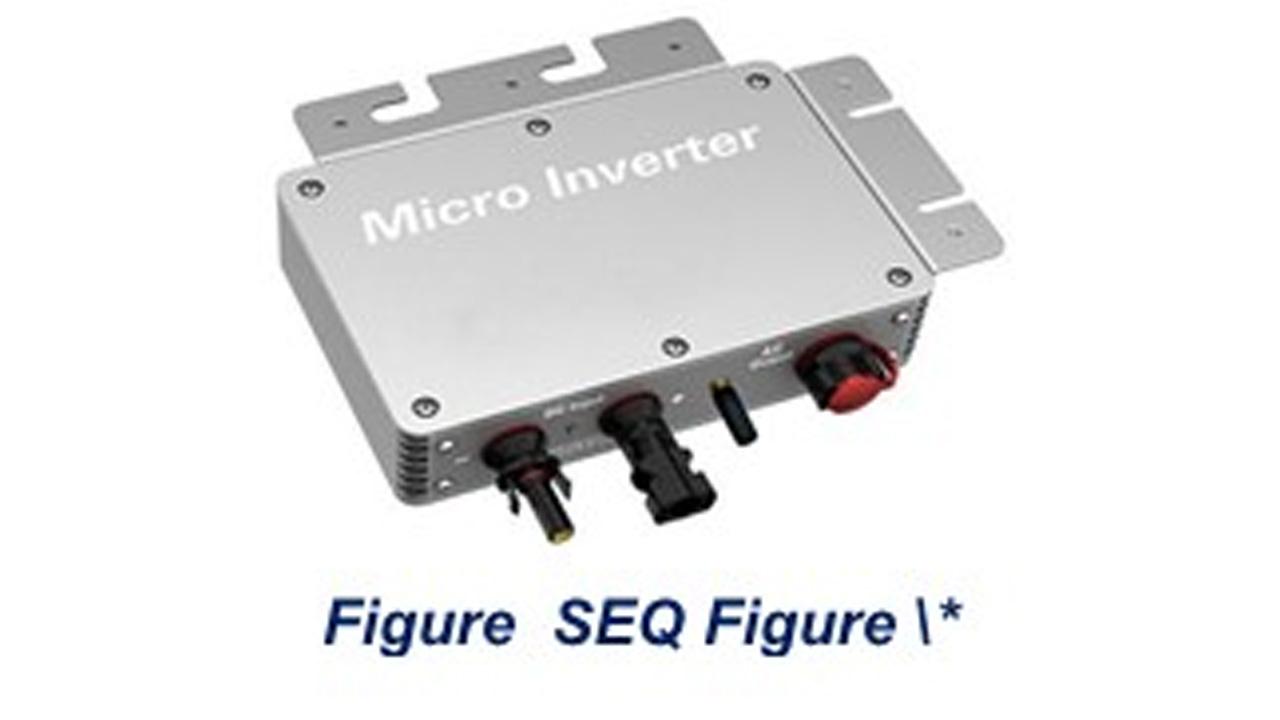Solar energy is considered the most advantageous among the renewable power sources. The sun rays are captured by the solar PV modules that convert them to electrical energy which is then used for different purposes.

However, this electrical energy produced by the PV module is in the form of DC which is converted into AC power through an electricity inverter called a solar inverter.
ADVERTISEMENT
There are different types of solar inverters; one of the most advanced types is Micro Inverter or Solar Micro Inverter. The micro inverter is the most reliable and efficient technology for the solar system. In this article, we will focus on this inverter's function, advantages, and disadvantages.
What is a Solar Micro Inverter?
A solar micro inverter is a simple and smart electronic device that can be installed separately on a single solar PV module to convert its DC power to AC power. Then, several micro inverters are mutually connected to obtain the output. These inverters are substitutes for traditional string and main solar inverters and are also available with the feature of maximum power point tracking (MPPT) to get maximum power output from a solar panel.
The main type of micro inverter is the “Solar Grid-tie Micro Inverter” (Figure 1) which can synchronize the voltage, frequency, and phase of solar power to the grid and is able to feed the excessive power to the main grid at 120V/60Hz or 230V/50Hz efficiently. These inverters are available with different rated power of 300W to 2800W, transforming 24V/48V DC power produced from a solar panel to 120V/230V AC power.
Advantages:
- Solar micro inverters can be installed under each solar panel due to the small and compact design to get maximum power from every panel and to achieve panel-based monitoring.
- These micro inverters are waterproof and can withstand rainy weather.
- The whole system’s efficiency doesn’t affect due to malfunctioning of one solar panel.
- These inverters are smart and can be remotely accessible to rectify any kind of issue through smart phone application.
- No separate cooling system is required as compared to main inverters which results in less heat loss.
- A solar array can be expanded easily with extra solar panels and micro inverters.
- Suitable for residential purposes where each module can be differently positioned in terms of shading pattern throughout the day.
Disadvantages:
- Higher cost is required in terms of commencement, maintenance and replacement due to separately installation on each panel.
- Comparatively, a central or extra monitoring system is required as each solar micro inverter is separately located.
- Due to installation on solar panels, these micro inverters have high risk to face hot weather.
Conclusion:
Having a solar system with solar micro inverters creates more convenience for consumers. These inverters are successful in residential applications where maximum power is required from each module of small-size arrays. Additionally, solar grid-tie micro inverters are more useful to save and earn money through net metering. Whereas, the aforementioned advantages and disadvantages of solar micro inverter will be informative for users to make this product an ideal choice for them.
 Subscribe today by clicking the link and stay updated with the latest news!" Click here!
Subscribe today by clicking the link and stay updated with the latest news!" Click here!








